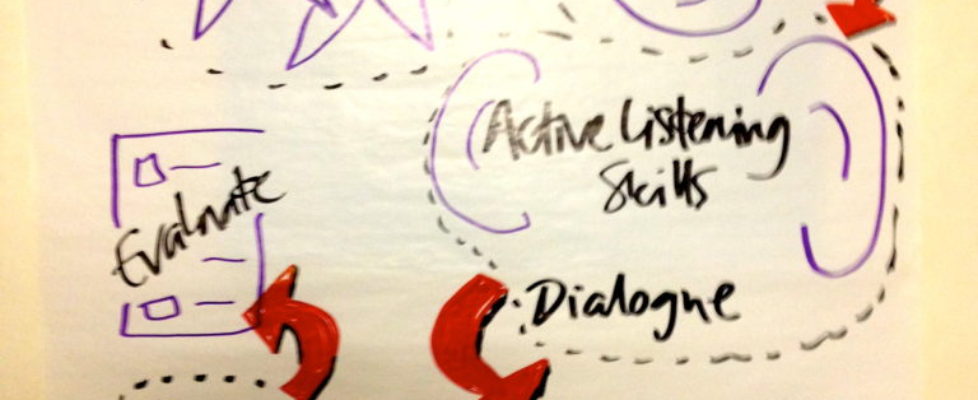essentials of conflict resolution
Matthew and I have been doing some work with a food coop; helping voluntary team leaders review and add to their conflict management tools. We’ll shortly be running our third workshop. Here’s what we work with people on –
Aims
- To develop the understanding and application of appropriate states of mind (consensual, non-judgemental, solution focussed)
- To develop the understanding and application of active listening and dialogue skills
- To enable participants to know when to apply these skills; and to what degree
- To enable participants to identify their further learning needs (if necessary)
Approach used in training
- Using small and large group discussions, activities, role plays and debriefs.
- Supporting material to back up learning. All participants to get material on State of Mind and Active Listening and the principles of cooperative conflict resolution.
- No slides – learning by doing.
- Two trainers – for support, to facilitate skills demonstrations, to maximise feedback to participants, for some variety
Outline session plan
- Introduction – housekeeping, people, negotiating how we’ll work together
- What is conflict resolution? Different approaches to this – focus on the models more appropriate to cooperatives – facilitative styles; person and group focussed.
- States of mind – exercises to build internal understanding of being non-judgemental, consensually focussed, solution focussed, unbiased, people/work orientated.
- Active Listening – listen, reflect, clarify, summarise, explore, produce ways forward, agree on them, action them. Go through these phases and make explicit why different to everyday conversations.
- Practise sessions – rounds of work on threes or fours with peer to peer work and peer observers giving feedback, along with the trainers (if needed), on realistic role plays.
- Review sessions – check ins on understanding of material and its application.
- Co-designing a process to deal with small scale conflicts and knowing when to refer them to personnel.
- Evaluation session.
All of the handouts we used, are available on our resources pages. Use and share.
Carl


